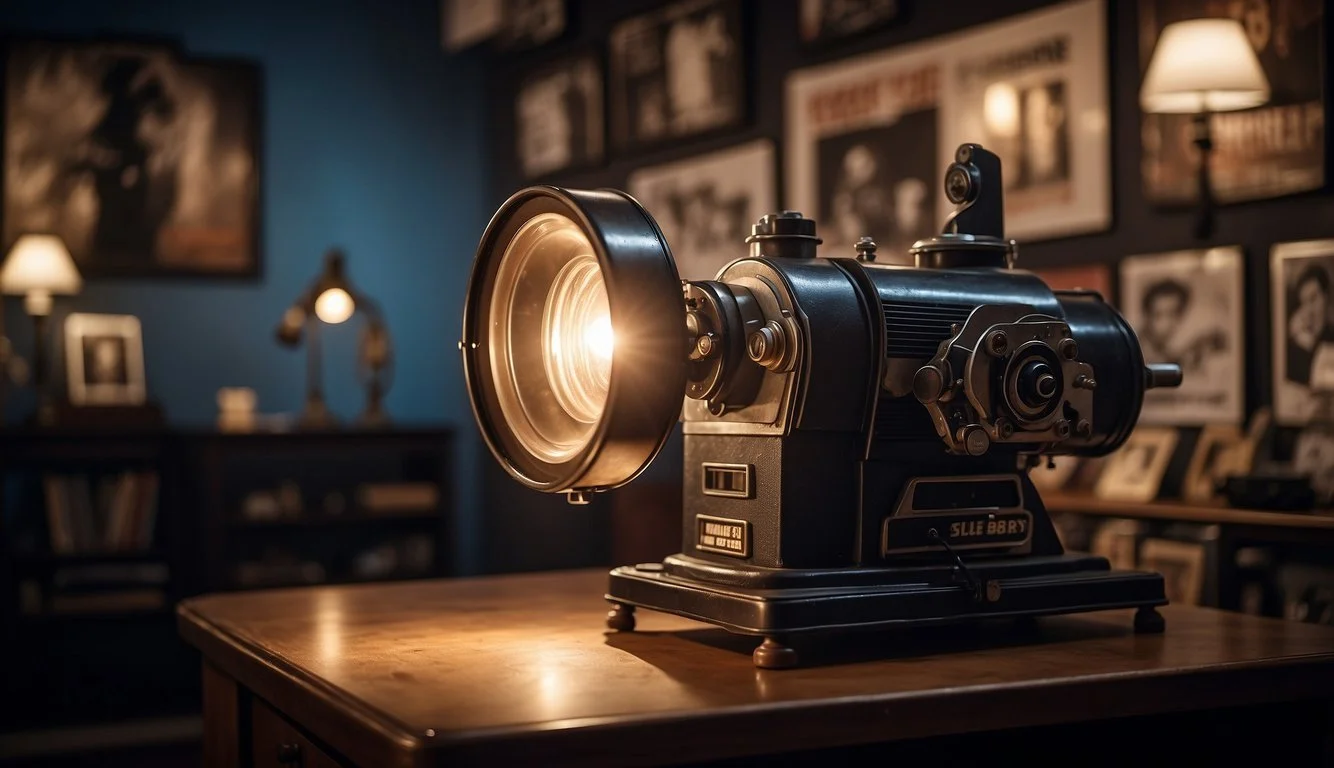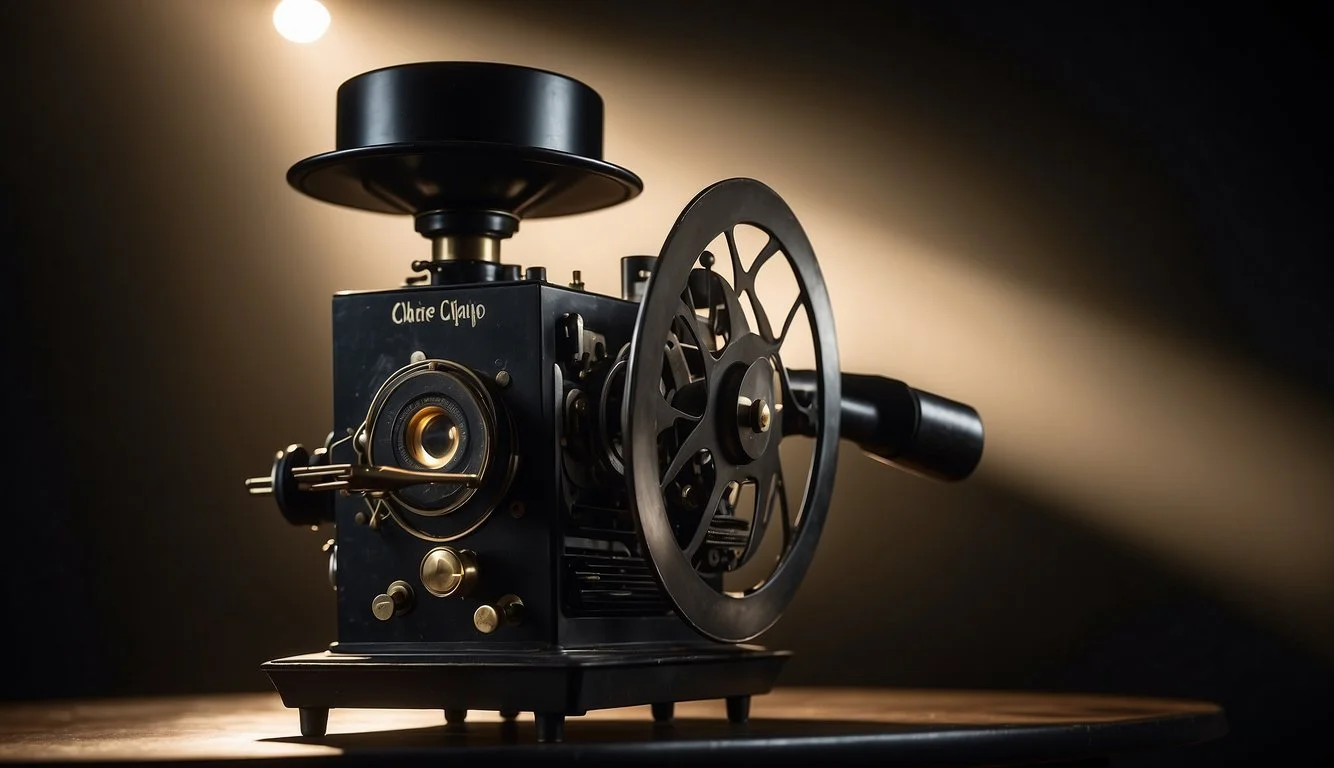Documentary Review: The Real Charlie Chaplin (2021)
A Deep Dive into the Legend
"The Real Charlie Chaplin" (2021) provides a nuanced look at Charlie Chaplin, one of the most celebrated figures in cinema history. Co-directed by Peter Middleton and James Spinney, the documentary delves into the complexities of Chaplin's life, from his rise to fame as The Tramp to the infamous scandals that marked his career. By incorporating audiotapes and interviews with those who knew him, the film offers a fresh perspective on Chaplin's enigmatic persona.
The documentary aims to go beyond Chaplin's iconic image, exploring the darker facets of his life and career. Viewers learn about his notorious romantic entanglements and brushes with controversy, shedding light on the man behind the legend. Effie Wisdom, one of the interviewees, provides a heartfelt account of her interactions with Chaplin, adding personal depth to the narrative.
This film is essential viewing for both Chaplin aficionados and newcomers alike, as it intricately weaves together personal anecdotes and archival footage. It paints a multifaceted portrait of Chaplin, inviting viewers to reassess their perceptions of this towering figure in cinema.
Filmmaking Overview
The co-directors Peter Middleton and James Spinney have crafted "The Real Charlie Chaplin" with a meticulous eye. Their unique stylistic choices and storytelling techniques provide depth to a well-covered subject.
Directorial Vision
Peter Middleton and James Spinney aimed to rejuvenate the narrative of Charlie Chaplin. They utilized audiotape recordings of people who knew Chaplin, incorporating first-hand anecdotes to add intimacy. This approach helps create a multifaceted portrait, blending personal insights with Chaplin’s public persona. The vision was to present not just Chaplin the icon, but the man behind the figure, delving into both his cinematic triumphs and personal challenges.
Cinematic Technique
The film combines archival footage, re-enactments, and narration to weave its story. The use of oft-excerpted home movie footage showcases Chaplin's life with Oona and their children at their estate, adding a personal layer. Pearl Mackie's narration stands out with its engaging delivery, enhancing the documentary’s emotional resonance. By blending different media, the filmmakers provide a rich, textured experience that reflects the complexity of Chaplin's life.
Narrative Structure
The documentary follows a chronological narrative, segmented by key phases of Chaplin's life, from his rise to fame to his political exile and later recognition. This structure allows for a comprehensive exploration of his career and personal life, maintaining a balanced pace. The story progression is marked by significant events, ensuring that viewers can follow Chaplin's journey and appreciate the impact of his work and personal choices.
Subject Exploration
"The Real Charlie Chaplin" delves into the multifaceted life of Charlie Chaplin, examining his immense cultural impact and placing his career in its historical context. This section will give a closer look at his life, enduring influence, and the broader historical backdrop in which he thrived.
Life of Charlie Chaplin
Charlie Chaplin was born in London in 1889 and rose from a childhood of poverty to become one of cinema’s most iconic figures. His early life was marked by hardship, with his mother being committed to an asylum and his father absent.
Chaplin entered the film industry in the early 20th century, eventually creating his beloved character, The Tramp. This character became synonymous with silent film comedy, showcasing Chaplin’s skills as an actor, director, and writer.
Throughout his career, Chaplin produced numerous classics, such as City Lights and Modern Times. He experienced both adoration and controversy, particularly in response to his political views and personal life. Chaplin's exile to Switzerland in the 1950s marked a significant chapter, yet his legacy continued to grow.
Cultural Impact
Chaplin's contribution to film extends beyond his films; he influenced the evolution of comedy and cinematic storytelling. He was a pioneer in melding humor with social commentary, tackling issues like poverty and the industrial age through a comedic lens.
Characters like The Tramp offered a universal appeal. His physical comedy and expressive acting transcended language barriers, earning him a global following.
His style can be seen in the works of subsequent filmmakers and comedians, who cite Chaplin as an inspirational figure. His ability to blend pathos with humor set a new standard in filmmaking, solidifying his place as a perpetual figure in popular culture.
Historical Context
Chaplin’s career began during the silent film era and peaked in the early 20th century, alongside the technological advancements in cinema. The rise of Hollywood coincided with his success, and he became a central figure in the Golden Age of Hollywood.
His works often reflected the societal issues of the time. For instance, Modern Times addressed the dehumanizing effects of industrialization, while The Great Dictator was a direct critique of fascism and Nazi Germany during the pre-World War II era.
The political atmosphere significantly influenced his life and career. Accusations of communist sympathies during the McCarthy era in the U.S. led to his eventual expatriation and a new life in Switzerland. Despite this, his films remained influential, and his acknowledgment by the Academy Awards in 1972 underscored his enduring legacy.
Critical Analysis
"The Real Charlie Chaplin" dissects the life and work of Charlie Chaplin with precision. The documentary offers thematic interpretation, unique insights, and comparative distinctions that standout among other biographical films.
Thematic Interpretation
Peter Middleton and James Spinney use Chaplin's narrative preoccupations to provide a psychoanalytical reading. They focus on Chaplin’s portrayal of The Tramp, examining themes of poverty and class struggle. The filmmakers reveal how Chaplin’s on-screen persona reflects his personal experiences and critiques societal norms. This thematic layer enriches the documentary, offering viewers a deeper comprehension of Chaplin's enduring appeal and the relevance of his work today.
The Real Charlie Chaplin's Insight
The use of audiotape recordings from those who knew Chaplin, such as Effie Wisdom, who interacted with him during their youth, adds authenticity. These first-hand accounts provide a vivid portrayal of Chaplin’s character beyond his screen presence. Middleton and Spinney’s meticulous approach ensures a balanced view of Chaplin's life, addressing both his genius and his controversies without sensationalism. Critical voices and praise are juxtaposed, enriching the narrative with a multifaceted view.
Comparative Distinction
Compared to other documentaries on Chaplin, "The Real Charlie Chaplin" stands out for its comprehensive and nuanced approach. While many works focus on his filmography or scandals, this documentary balances his professional achievements with personal anecdotes. The blend of biographical elements with critical analysis offers a rounded portrait seldom seen in typical biographical films. This distinctive approach sets it apart as a significant contribution to Chaplin studies and documentary filmmaking.
Cultural Relevance
The Real Charlie Chaplin (2021) delves into the lasting significance of Charlie Chaplin's work in modern culture and industry. It explores how his legacy still resonates today and why he remains a pivotal figure in cinematic history.
Modern Reflections
Charlie Chaplin's influence on modern cinema is profound. His character, The Tramp, continues to be an icon of resilience and humor. Contemporary filmmakers often cite Chaplin as a key inspiration, using his techniques in storytelling and physical comedy.
Chaplin's works are frequently referenced or parodied in popular media. Films and TV shows today pay homage to his style, ensuring that new generations are acquainted with his genius.
Industry Perspectives
From an industry perspective, Chaplin's innovations in filmmaking set foundational standards. His approach to combining comedy with social commentary is studied in film schools worldwide.
Directors often emulate his pioneering use of visual effects, editing techniques, and narrative structures. Industry veterans credit Chaplin with paving the way for modern independent filmmaking due to his control over his creative process.
Viewer Reception
"The Real Charlie Chaplin" has garnered mixed reactions from audiences and critics alike. Viewers appreciate the film's in-depth exploration of Chaplin's life but offer contrasting viewpoints on its execution and presentation.
Audience Response
Audiences respond positively to the documentary's use of personal audiotapes and home movie footage. Many feel these elements bring a sense of authenticity and intimacy to Chaplin's story. Viewers comment on the emotional impact of seeing Chaplin with his family, especially during his later years in Switzerland.
Some viewers, though, mention that the documentary's structure occasionally feels disjointed. They find the transitions between different phases of Chaplin's life somewhat abrupt. Nevertheless, the film's unique approach and Pearl Mackie's narration earn praise.
Critical Reception
Critics regard "The Real Charlie Chaplin" as a skillfully made documentary. Publications like Variety and The Hollywood Reporter commend the film's vivid assembly and the directors' meticulous research. Effie Wisdom's recollections and the in-depth interview from 1966 provide substantial insights into Chaplin's character.
However, some critics point out that while the documentary is thorough, it stops short of being groundbreaking. They argue that certain familiar beats, like Chaplin’s political exile and his honorary Academy Award, have been covered extensively elsewhere. Despite this, the documentary's strengths, including its emotive narration and rare footage, are widely acknowledged.
Legacy of the Documentary
"The Real Charlie Chaplin" documentary has made a notable impact on both the filmmaking community and educational institutions. Highlighting the life and influence of Charlie Chaplin, it offers rich insights for directors and serves as a valuable educational tool.
Influence on Filmmaking
This documentary's innovative techniques have impressed many filmmakers. Directed by Peter Middleton and James Spinney, it combines rare archival footage with dramatic reenactments, creating a compelling narrative. The depth of Chaplin's character portrayal has set a new benchmark in biographical filmmaking.
Filmmakers appreciate the balanced blending of vintage clips and contemporary storytelling. The juxtaposition offers a fresh perspective on creating engaging biographical pieces. Future documentaries might draw inspiration from its method of presenting historical figures in a nuanced light.
Educational Merit
"The Real Charlie Chaplin" is significant as an educational resource. It delves into the historical and cultural contexts that shaped Chaplin’s career, providing students with a comprehensive overview of early cinema history. The use of primary sources, like the Life magazine interview from 1966, enriches the learning experience.
Educators can utilize the documentary to discuss broader themes such as censorship, political exile, and the evolution of comedic art. Chaplin's storied career offers numerous discussion points for film studies and history courses, making this documentary a valuable addition to academic programs.
Conclusion
The documentary The Real Charlie Chaplin offers a comprehensive look at the life and legacy of Charlie Chaplin. Directed by Peter Middleton and James Spinney, it provides valuable insights into Chaplin's career and personal life.
Through audiotape recordings, viewers hear firsthand accounts from those who knew Chaplin. This adds depth to the narrative and paints a vivid picture of the man behind the iconic Tramp.
The film skillfully uses various visual and audio elements to keep viewers engaged. Home movie footage and narrated segments by Pearl Mackie enrich the storytelling, highlighting significant moments in Chaplin's life, including his political exile and his honorary Academy Award acceptance in 1972.
The balance of personal anecdotes and historical context makes this documentary a satisfying experience. It does not claim to be exhaustive but offers a well-rounded portrayal of Chaplin as both an artist and a person.
The Real Charlie Chaplin stands out for its thoughtful assembly and presentation. It allows the audience to appreciate not just Chaplin's contributions to cinema but also his complex, multifaceted persona.
Viewers seeking an informative and engaging look at one of cinema's greatest figures will find this documentary to be a worthwhile watch. It serves as a fitting tribute to the enduring legacy of Charlie Chaplin.





